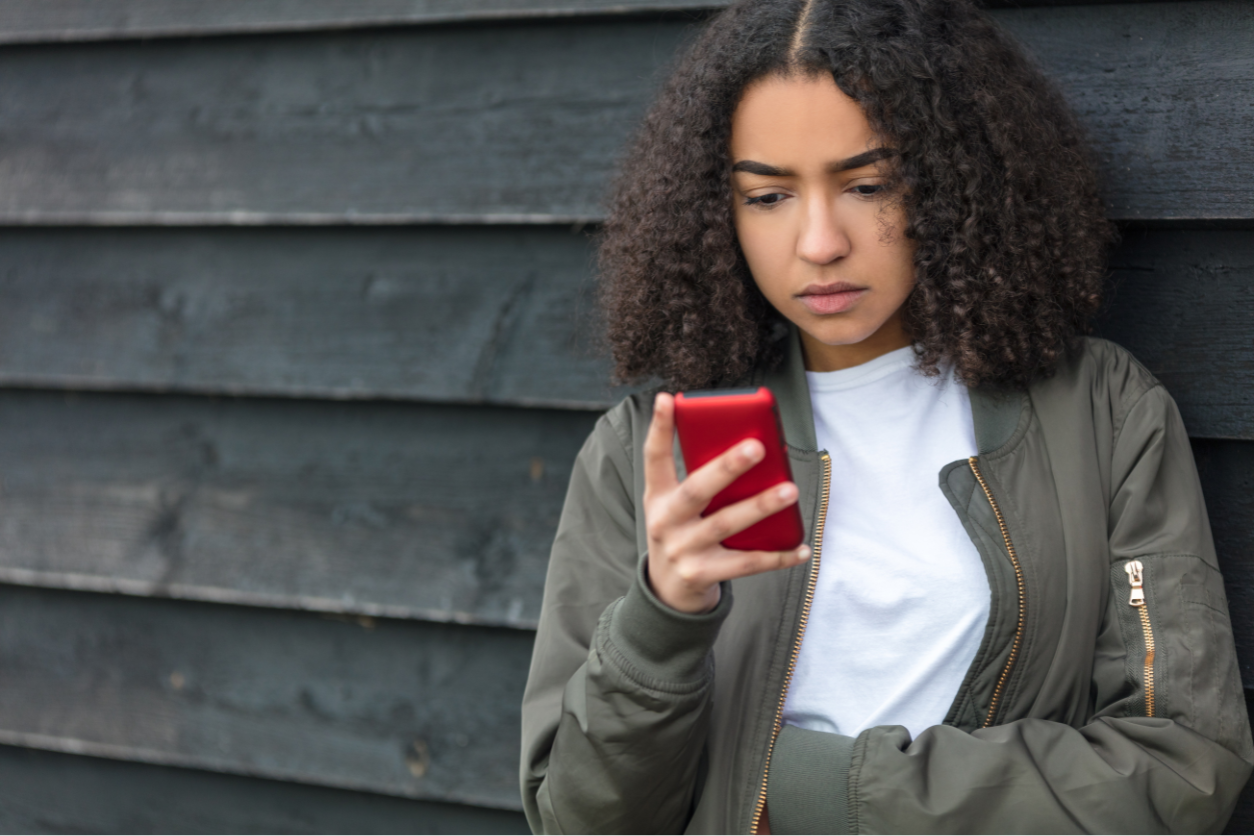Abuse is when someone hurts, controls, or manipulates you, making you feel unsafe, scared, or uncomfortable. It can happen in different ways and can come from anyone, including family members, friends, romantic partners, or people you meet online.
Abuse is never your fault, and there are people who can help. Knowing the different types of abuse can help you recognise it and find support.
-
Physical abuse: This involves someone hurting your body on purpose. It could be hitting, kicking, slapping, pushing, or any other way of causing physical pain. Even if there are no visible injuries, physical abuse is serious and can leave emotional scars too.
-
Emotional abuse: This is when someone uses words or behaviour to make you feel worthless, scared, or ashamed. It could be constant insults, threats, or making you feel guilty for things that aren’t your fault. It can also include controlling or coercive behaviour, where someone pressures you to do things or doesn't let you make your own decisions. Emotional abuse can be just as harmful as physical abuse, even if there are no visible signs.
-
Sexual abuse: Sexual abuse happens when someone forces or pressures you into sexual activity without your consent. This can include inappropriate touching, forcing you to watch sexual content, or making you do things you don’t want to do. Sexual abuse is a serious crime, and it’s important to get help if this is happening to you.
-
Grooming: Grooming is when someone builds trust with you in order to manipulate or exploit you, often for sexual purposes. This can happen in person or online, and the person might make you feel special before turning the relationship into something harmful.
-
Online abuse: Online abuse can take many forms, such as bullying, harassment, or sending inappropriate messages or images. It can happen through social media, games, or messaging apps. Just because it happens online doesn’t make it any less real – online abuse can have serious effects on your mental health and well-being.
-
Feeling scared, controlled, or manipulated by someone.
-
Being afraid to say no or set boundaries.
-
Receiving threats or being hurt physically.
-
Being pressured into doing things you’re uncomfortable with.
-
Feeling isolated from friends or family by the person abusing you.
If you think you’re being abused, it’s important to remember that it’s not your fault, and there are people who can help. You don’t have to face this alone. Here are some steps you can take:
-
Talk to someone you trust: This could be a family member, teacher, faith leader, or school nurse.
-
Call Childline: You can talk to them confidentially and for free by phoning 0800 1111. More information and other ways to reach out are on the Childline website. Home – Childline.
-
The Survivors Trust: Offers support for anyone affected by sexual abuse. Home – The Survivors Trust.
-
Call 999: If you’re in immediate danger, call 999 for emergency help.
Female genital mutilation (FGM) is when the female genitals are deliberately cut, injured, or changed for non-medical reasons. FGM is practiced for various cultural, religious, and social reasons. Some families and communities believe it brings benefits to girls, such as preparing them for marriage or making them more suitable for childbirth. It's a harmful practice that has no health benefits and can cause lifelong physical and emotional harm. FGM is illegal in the UK, and if you or someone you know is at risk, there is help available.
Girls from communities that practice FGM face the highest risk, whether they live in the UK or abroad. The UK Home Office has highlighted specific communities where girls and women may be at increased risk, including:
-
Somali
-
Kenyan
-
Ethiopian
-
Sierra Leonean
-
Sudanese
-
Egyptian
-
Nigerian
-
Eritrean
-
Yemeni
-
Kurdish
-
Indonesian
If you’re worried that you or someone else is at risk of FGM, it’s important to tell someone you trust. FGM is illegal in the UK, and you can get help before it happens. If you’re already affected by FGM, support is available to help you recover and stay safe.
-
Speak to a trusted adult: This could be a parent, teacher, school nurse, or faith leader.
-
Call Childline: You can talk to someone confidentially at 0800 1111 or visit their website for more ways to reach out. Home – Childline.
-
Reach out to FORWARD: FORWARD is a UK organisation that supports African women and girls affected by gender-based violence, such as FGM. Support services – FORWARD.
-
Contact the NSPCC FGM Helpline: They offer confidential advice and support at 0800 028 3550 or you can send an email to fgmhelp
@nspcc.org.uk .
-
School nurse or GP: They can provide confidential support and connect you with resources.
-
NSPCC: Offers help and advice for young people affected by abuse. Home – NSPCC.
-
Childline: For free, confidential advice and support at 0800 1111. More information and other ways to reach out are on their website. Home – Childline.
-
National Domestic Abuse Helpline: Call 0808 2000 247 for free and in confidence. More ways to reach out and advice on keeping safe can be found on their website. Homepage - National Domestic Abuse Helpline
-
The Havens: Offers free support for anyone who has been raped or sexually assaulted in the past 12 months. How we can help – The Havens.
